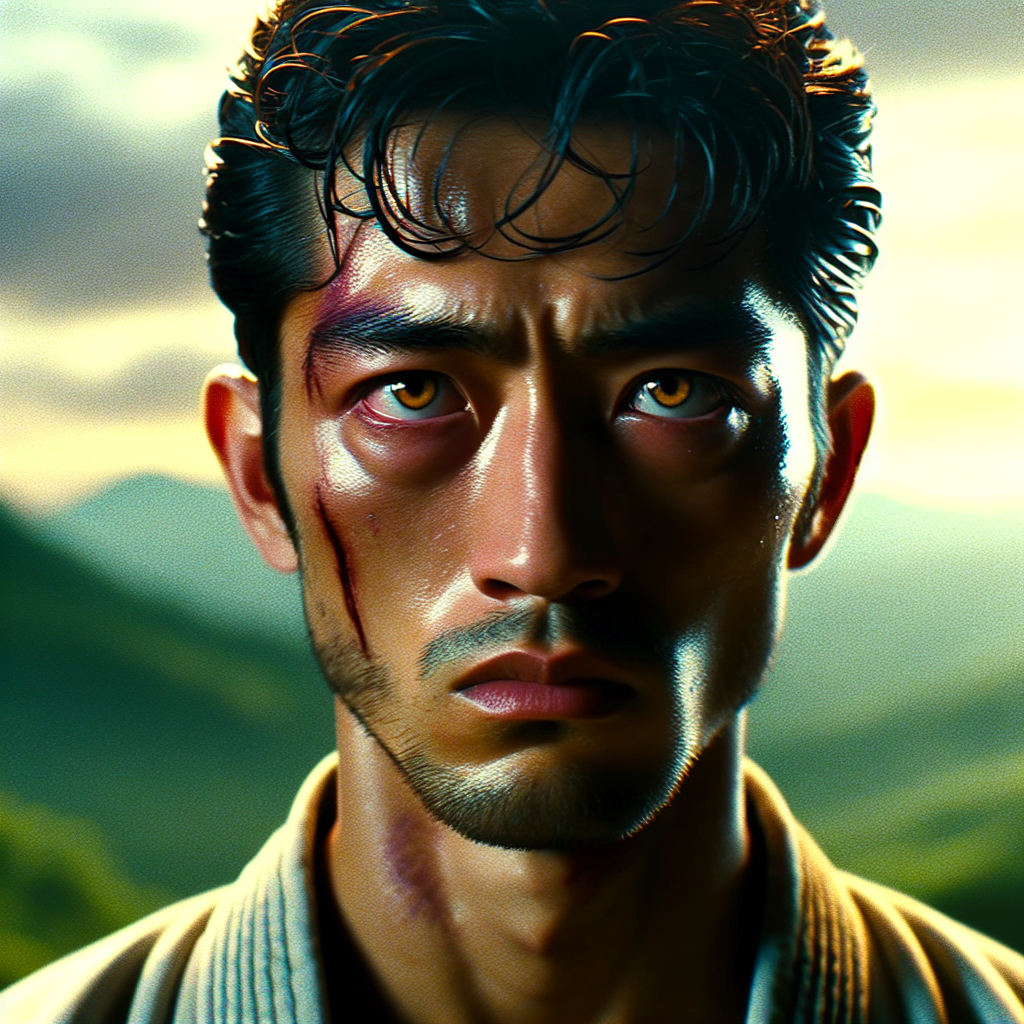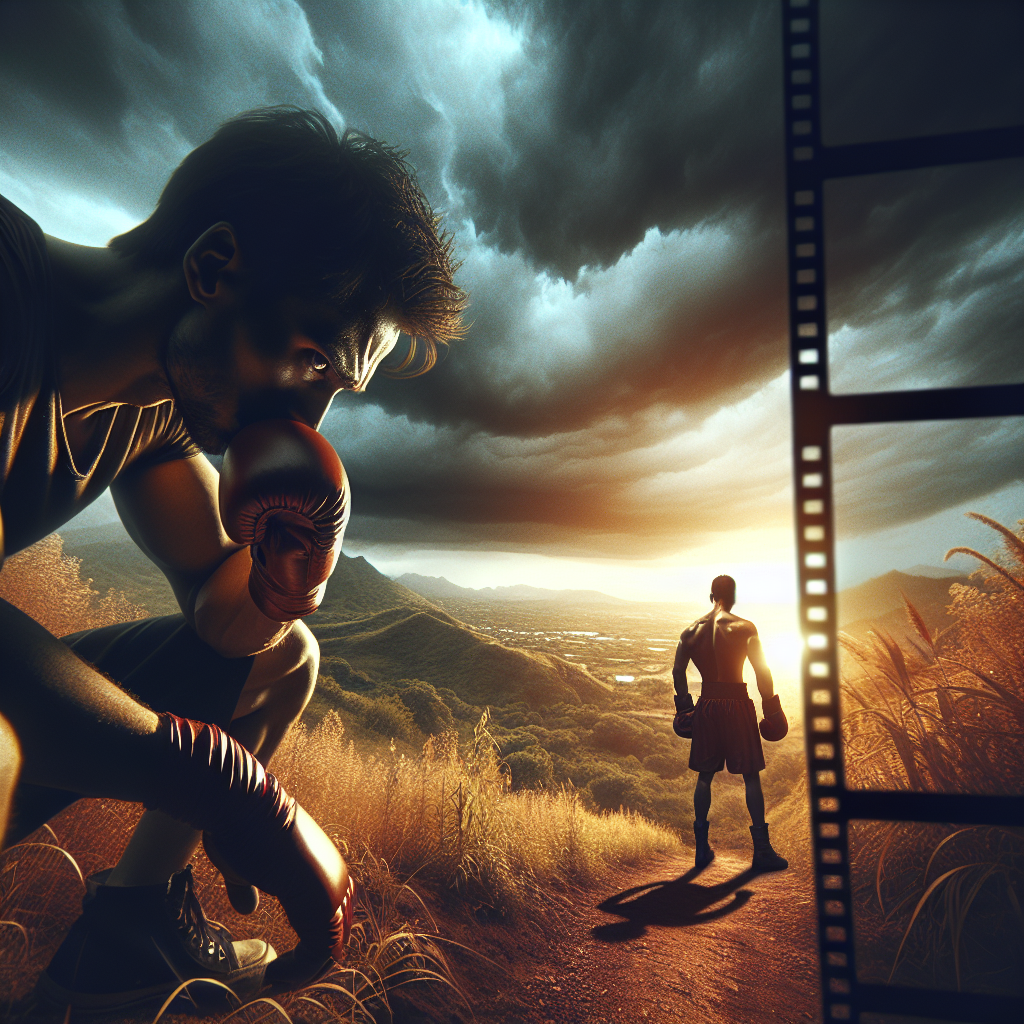Inoue admits feeling ‘scared’ as Tapales showdown nears

Inoue Admits Feeling ‘Scared’ Ahead Of Tapales Showdown
Naoya Inoue, the Japanese boxing sensation known for his formidable prowess in the ring, has recently admitted to feeling a sense of fear as his highly anticipated showdown with Marlon Tapales approaches. This revelation comes as a surprise to many, given Inoue’s reputation for his unyielding confidence and remarkable track record. However, his candid admission sheds light on the psychological complexities that even the most accomplished athletes face.
Inoue, often referred to as “The Monster” due to his aggressive fighting style and impressive knockout record, has consistently demonstrated an unwavering determination throughout his career. His admission of fear, therefore, underscores the gravity of the upcoming bout against Tapales, a Filipino boxer with a commendable record of his own. Tapales, known for his resilience and tactical acumen, presents a formidable challenge that has evidently stirred a sense of apprehension in Inoue.
Despite his fear, Inoue remains resolute in his preparation for the fight. He has emphasized that this fear is not a sign of weakness but rather a testament to the respect he holds for his opponent and the sport itself. This perspective highlights the intricate balance between confidence and humility that is essential for success in boxing. Inoue’s acknowledgment of his fear serves as a reminder that even the most dominant athletes are not immune to the psychological pressures that accompany high-stakes competitions.
Moreover, Inoue’s admission provides a glimpse into the mental fortitude required to excel in professional boxing. The sport demands not only physical prowess but also an acute mental resilience. Inoue’s ability to confront and articulate his fears demonstrates a level of self-awareness that is crucial for navigating the challenges of the sport. This self-awareness, coupled with his rigorous training regimen, positions him well to face Tapales with both physical and mental preparedness.
As the fight date draws nearer, the anticipation surrounding the Inoue-Tapales showdown continues to build. Fans and analysts alike are eager to see how Inoue’s admission of fear will influence his performance in the ring. Some speculate that this newfound vulnerability may humanize Inoue, making him more relatable to his supporters. Others argue that it could serve as a strategic advantage, allowing Inoue to channel his fear into a heightened sense of focus and determination.
Inoue’s candidness also opens a broader conversation about the role of fear in sports. It challenges the conventional notion that fear is inherently detrimental, suggesting instead that it can be a powerful motivator. By acknowledging his fear, Inoue sets an example for other athletes, encouraging them to embrace their vulnerabilities as part of their journey toward excellence.
In conclusion, Naoya Inoue’s admission of feeling scared ahead of his showdown with Marlon Tapales offers a profound insight into the psychological dimensions of professional boxing. It underscores the respect and humility that underpin true athletic greatness, while also highlighting the mental resilience required to succeed at the highest levels of the sport. As the world awaits this highly anticipated bout, Inoue’s honesty serves as a poignant reminder that even the fiercest competitors are not immune to fear, and that confronting it head-on is a testament to their strength and character.
Psychological Battle: Inoue’s Fears Before Facing Tapales

Naoya Inoue, the Japanese boxing sensation known for his formidable prowess in the ring, has recently opened up about his psychological state as he prepares for his highly anticipated showdown with Marlon Tapales. Inoue, often dubbed “The Monster” for his relentless and aggressive fighting style, has admitted to feeling a sense of fear as the bout approaches. This revelation offers a rare glimpse into the mental landscape of a fighter who is typically perceived as invincible.
Inoue’s admission of fear is not an indication of weakness but rather a testament to the high stakes and intense pressure that accompany a match of this caliber. The psychological battle that fighters endure is often overshadowed by the physical demands of the sport. However, Inoue’s candidness sheds light on the mental challenges that even the most elite athletes face. As he prepares to step into the ring with Tapales, a formidable opponent in his own right, Inoue’s acknowledgment of his fears underscores the human aspect of boxing.
The fear that Inoue experiences is multifaceted. On one hand, there is the fear of the unknown. Despite meticulous preparation and rigorous training, the outcome of a fight is never guaranteed. This uncertainty can be daunting, even for a seasoned champion like Inoue. Additionally, there is the fear of failure. Inoue’s impressive track record and reputation as one of the best pound-for-pound fighters in the world add an extra layer of pressure. The expectations from fans, coaches, and even himself can create a mental burden that is difficult to shake off.
Moreover, Inoue’s fear is also rooted in the respect he has for Tapales. Recognizing the skills and capabilities of his opponent, Inoue understands that underestimating Tapales could be a grave mistake. This respect translates into a healthy fear, one that keeps him vigilant and focused. It is this very fear that drives Inoue to push his limits, ensuring that he leaves no stone unturned in his preparation.
Transitioning from the acknowledgment of fear to its management, Inoue employs various strategies to cope with the psychological pressures. Visualization techniques, mental conditioning, and the support of his team play crucial roles in maintaining his mental fortitude. By visualizing different scenarios and outcomes, Inoue prepares himself for any eventuality, reducing the element of surprise and enhancing his confidence. Mental conditioning, on the other hand, helps him stay calm and composed, preventing fear from overwhelming his performance.
Furthermore, the support system around Inoue, including his coaches, family, and friends, provides a buffer against the mental strain. Their encouragement and belief in his abilities reinforce his self-confidence, allowing him to channel his fear into a source of motivation rather than a hindrance. This holistic approach to mental preparation is as vital as the physical training that Inoue undergoes.
In conclusion, Naoya Inoue’s admission of fear as he approaches his fight with Marlon Tapales offers a profound insight into the psychological battles that athletes face. It highlights the complexity of fear, its sources, and the strategies employed to manage it. Inoue’s openness not only humanizes him but also serves as an inspiration to others, demonstrating that fear, when acknowledged and managed effectively, can be a powerful driving force. As the fight draws near, the world will be watching to see how Inoue channels his fears into a performance that befits his moniker, “The Monster.”
Inoue’s Candid Confession: Fear And Anticipation Before Tapales Fight
Naoya Inoue, the Japanese boxing sensation known for his formidable prowess in the ring, has recently made a candid confession that has taken the boxing world by surprise. As his highly anticipated showdown with Marlon Tapales approaches, Inoue has admitted to feeling a sense of fear. This revelation is particularly striking given Inoue’s reputation for his unyielding confidence and relentless fighting spirit. However, his admission of fear does not signify a lack of preparation or resolve; rather, it underscores the profound respect he holds for the sport and his opponent.
Inoue’s acknowledgment of fear is a testament to the psychological complexities that even the most seasoned athletes face. Despite his impressive track record, which includes multiple world titles across different weight classes, Inoue is acutely aware of the unpredictable nature of boxing. This awareness is heightened as he prepares to face Tapales, a formidable opponent with a reputation for his aggressive style and knockout power. Inoue’s fear, therefore, is not a sign of weakness but a reflection of his deep understanding of the stakes involved in such a high-profile match.
Transitioning from his admission of fear, Inoue has also expressed a sense of anticipation and excitement for the upcoming fight. This duality of emotions—fear and anticipation—illustrates the intricate balance that athletes must maintain. On one hand, fear serves as a motivator, pushing Inoue to train harder and refine his strategies. On the other hand, anticipation fuels his competitive spirit, driving him to embrace the challenge and showcase his skills on a global stage. This blend of emotions is what makes the sport of boxing so compelling, as it reveals the human side of athletes who are often perceived as invincible.
Moreover, Inoue’s candid confession has resonated with fans and fellow athletes alike. It has sparked conversations about the mental and emotional aspects of professional sports, shedding light on the pressures that come with being at the top of one’s game. Inoue’s openness has also endeared him to many, as it humanizes a figure who is often seen as a larger-than-life champion. By sharing his fears, Inoue has demonstrated that vulnerability can coexist with strength, and that acknowledging one’s emotions is a crucial part of the journey to greatness.
As the fight date draws nearer, the boxing community is abuzz with speculation and analysis. Experts are weighing in on how Inoue’s admission might impact his performance, while fans are eagerly anticipating what promises to be a thrilling encounter. Inoue’s training camp has been marked by intense preparation, with his team focusing on both physical conditioning and mental fortitude. This holistic approach underscores the importance of mental resilience in addition to physical prowess, highlighting the multifaceted nature of boxing as a sport.
In conclusion, Naoya Inoue’s admission of fear as he prepares for his showdown with Marlon Tapales offers a rare glimpse into the emotional landscape of a champion. It serves as a reminder that even the most accomplished athletes are not immune to the psychological challenges that come with their profession. Inoue’s honesty and introspection have not only deepened the respect and admiration of his fans but have also sparked important conversations about the mental aspects of competitive sports. As the world awaits this epic clash, Inoue’s journey stands as a powerful testament to the courage it takes to confront one’s fears and rise to the occasion.

